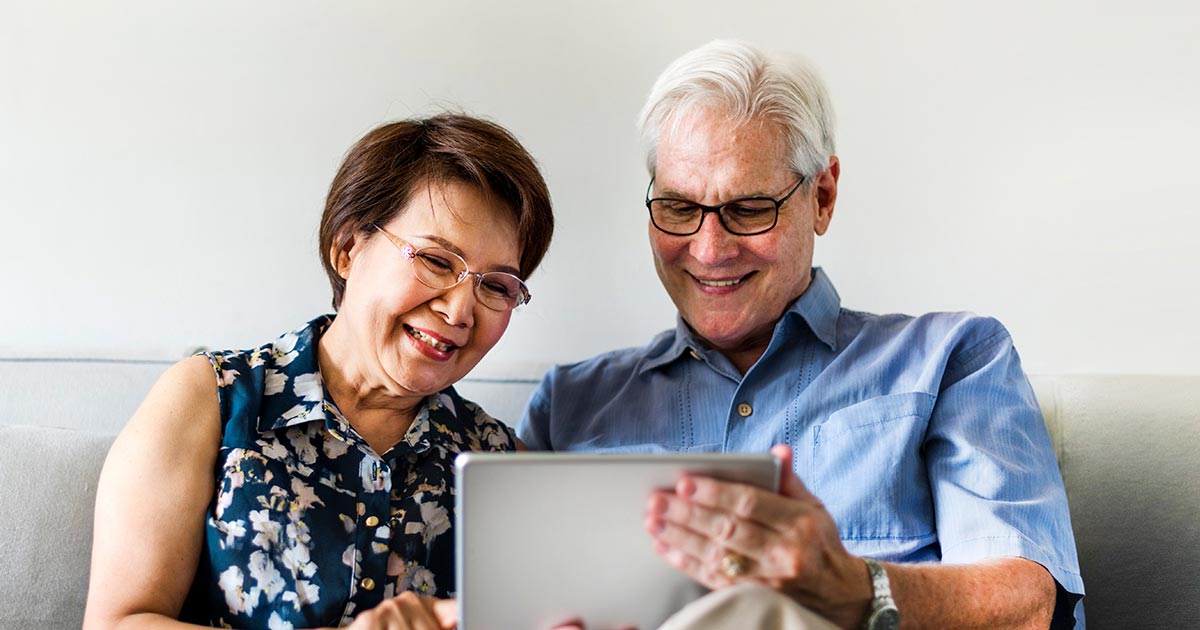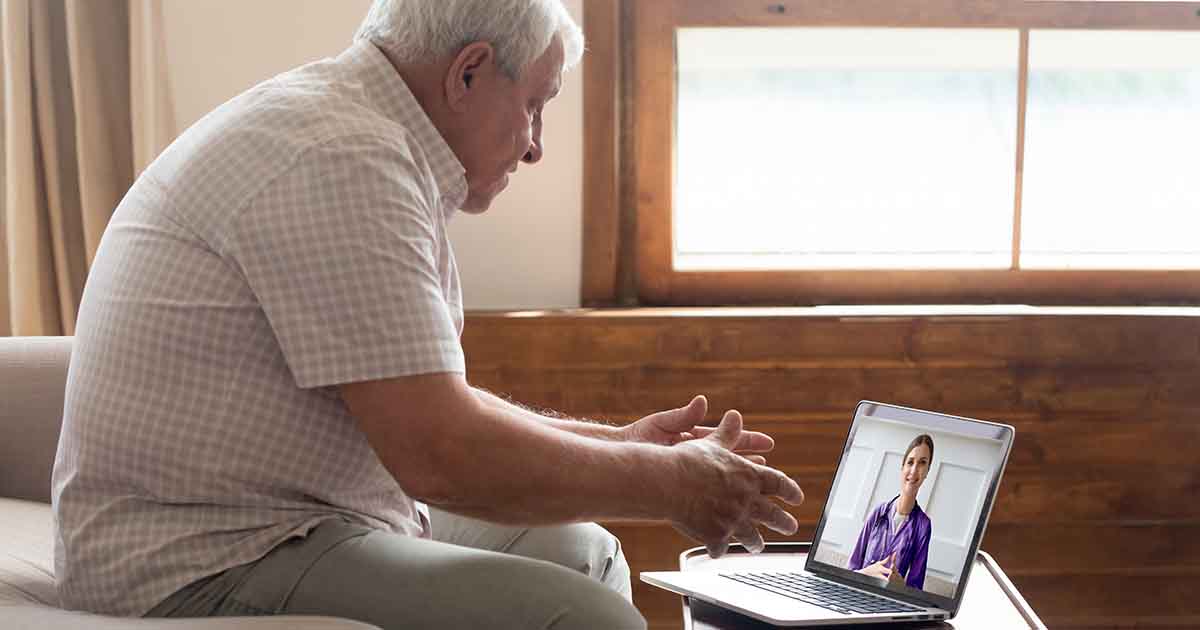In today’s world, there are a number of obstacles caregivers face. For some, that may be struggling to provide long-distance care. Whether it’s due to geographical location, a health crisis or hectic personal schedules, distance adds an extra set of challenges to providing dementia support for loved ones.
Despite the distance, there are many ways caregivers can remain actively involved in their care and help them live well with dementia.
Stay in touch with their care team
Building a list of contacts and local resources is vital when coordinating care from a distance. This can help you know who to call and when should you have a question or concern about their care.
Keep in contact with your loved one’s primary physician and other key members who are overseeing their care. If they live in an assisted living facility or nursing home, make sure to stay also stay in close communication with facility staff.
Most importantly, ensure that all critical care team members know to contact you with any updates or significant changes in your loved one’s health. Set up a process for each member of their care team on how they would prefer to send you updates, whether it’s through phone calls, emails or video conferencing.
Utilize technology to provide dementia support
Technology is a great tool that can help you provide support from a distance. Technology can allow you to schedule doctor’s appointments for them online, call on insurance claims, order grocery delivery and even pay their bills and manage accounts all from afar.
These are all important areas of caring for someone living with dementia that you can oversee and control no matter where you are.
Focus on connecting with your loved one
In addition to phone calls, try using video chats and webcams to connect. If they live in an assisted living facility or nursing home, facility staff can often assist patients in accessing the appropriate technology and scheduling family video chats.
You can also consider mailing letters or sending pictures. This is an easy and personal way to let your loved one know you are thinking of them and can also help stimulate some fond memories.
Provide dementia support by starting advance care planning
Advance care planning helps individuals and their caregivers plan for future health care decisions. It provides an opportunity to discuss beliefs, values, goals and wishes with your loved one and their health care team to ensure the care they receive is consistent with what they desire.
As dementia progresses, an individual’s ability to consider future thoughts and actions may become compromised, but that doesn’t mean they shouldn’t be part of decisions about their care. Home health and other care professionals can help you have these conversations with your loved one and even coordinate necessary paperwork for long-distance caregivers.
Make the most out of your visits
When you are able to visit, make time for non-caregiver activities. Consider joining in on activity they enjoy, taking walks outside or playing a game of cards. Although your visits can serve as a time to check in with their care team and other key decision makers, it’s also important to spend time making memories with your loved one. Plan necessary physician or care team visits ahead of time so you can have clear-cut and realistic goals for your visits, while also prioritizing time with them.
Social Share
At Enhabit our patients are our number one priority. From providing the latest medical practices to building deep personal connections, we’re focused on upholding every patient’s dignity, humanity and sense of control on their health care journey.
Home health
Our home health services give patients access to the care they deserve in the comfort of their own homes. From disease and injury management to recovery from surgery, our clinicians help patients confidently achieve their healthcare goals.
Hospice care
Our hospice care services place importance on the comfort of every patient living with a terminal illness. Our caring professionals are dedicated to providing not just physical care, but spiritual and emotional support to every patient and their loved ones.






